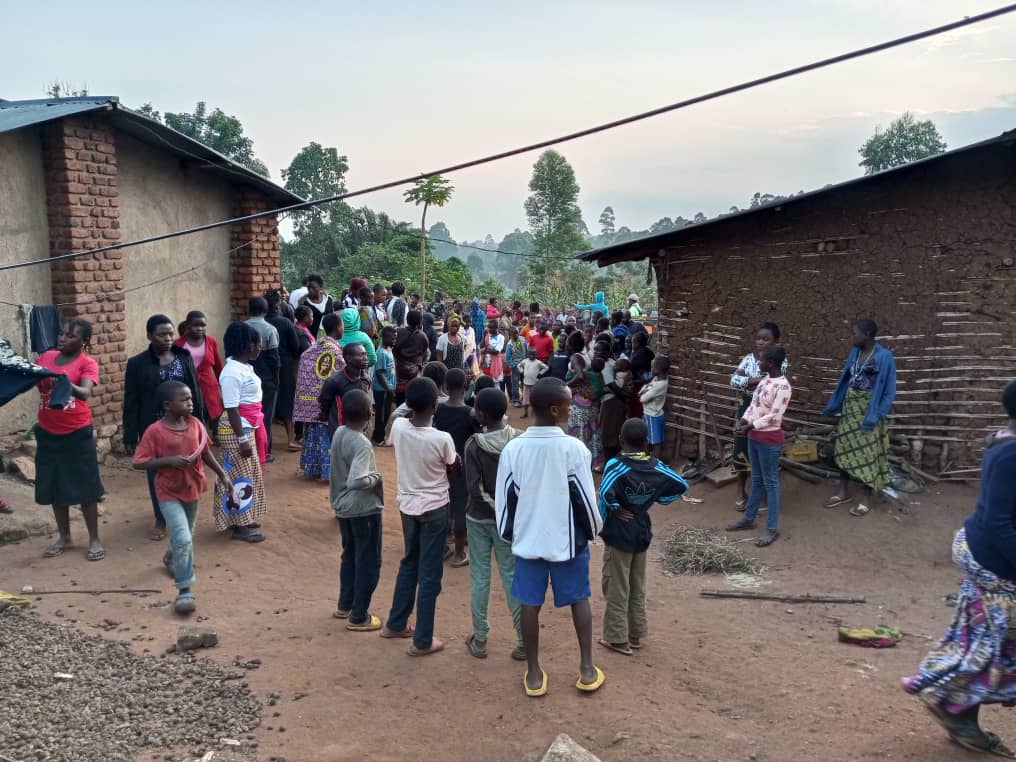### The Proliferation of ADF Attacks in Beni: A Call for Community Integration and Sustainable Solutions
Recent statements by MP Arsène Mwaka, representing the Beni constituency in North Kivu, highlight a persistent humanitarian crisis aggravated by an intensification of attacks by the rebels of the Allied Democratic Forces (ADF). This reality, all too often relayed to the ears of politicians alone, nevertheless requires broader attention and collective action.
#### An Alarming Observation
For several weeks, villages in the Beni territory have been under attack by the ADF, an armed group whose origins and motivations remain complex to understand. Mr. Mwaka’s statements reveal growing concern about the cycle of violence which, according to him, seems largely influenced by the reactivation of military operations in the neighboring territory of Lubero. Indeed, this dynamic could be interpreted as an attempt at destabilization by the ADF, eager to maintain its paralyzing power over local populations.
Far from being an isolated event, the escalation of violence in Beni is part of a broader trend observed in the Kivu region. According to data from the United Nations Stabilization Mission in the Democratic Republic of Congo (MONUSCO), the number of violent incidents linked to armed groups in this region has increased considerably in recent years. This phenomenon requires a thorough reading of the structural, historical and economic causes that fuel this climate of terror.
#### An Integrated Response Model
The approach advocated by Mr. Mwaka, centered on the development of local security plans that encompass not only the army and the police, but also the population and local authorities, presents a promising approach. Sustainable peace cannot be achieved without the active participation of local communities, who are often the first victims of this insidious violence. This model of integration and collaboration could inspire other regions affected by similar phenomena, both in the DRC and elsewhere on the African continent and beyond.
Community initiatives, such as local security committees, can play a crucial role in identifying and preventing threats, while strengthening the resilience of populations. These structures could also facilitate awareness-raising through educational programs on peace and peaceful coexistence, thus enabling young people to become agents of change within their communities.
#### A Long-Term Vision
However, it would be reductive to think that solving the ADF problem is limited to security and public order. Comparative analyses with other countries that have experienced similar situations, such as Mali or Nigeria with Boko Haram, show that solutions must also address the economic, social and political dimensions. In these contexts, inclusive economic development, the fight against corruption and the promotion of intercommunity dialogue have been essential levers to reduce the attractiveness of armed groups.
A report by the Institute for Security Studies (ISS) revealed that the majority of young people recruited by such groups come from precarious and marginalized backgrounds. Investing in education, vocational training and job offers is therefore an essential avenue to stem this scourge.
#### Towards a General Mobilization
The challenge is immense, but it is not insurmountable. The commitment of political authorities, civil society organizations and international partners must be supported by a concerted action plan that remains focused on the needs of local populations. The fight against the ADF in Beni must become everyone’s business – a true societal project.
It is imperative not to give in to fate. The fight for peace in Beni can and must be guided by a vision shared by all stakeholders. As for Mr. Mwaka, his call to action resonates as a rallying cry for all those who believe in a transition to a more peaceful future for the DRC. At a time when news travels at breakneck speed, let us remember that every voice counts, and that every initiative for peace, however small, can one day bear great fruit.

